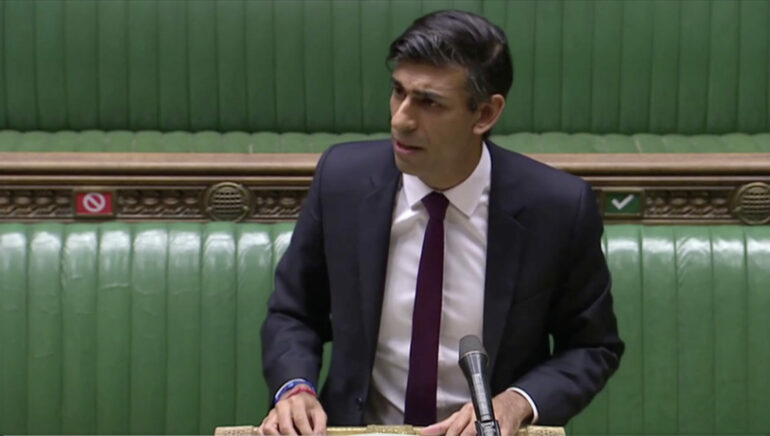The Chancellor is facing renewed pressure to scrap the planned increase in national insurance as the cost of living crisis deepens.
With the rise set to come in to force next month MPs and business groups have called on Rishi Sunak to rethink the plans.
The 1.25% increase comes as fears grow that Russia’s invasion of Ukraine will dramatically worsen the cost of living crisis and plunge the economy into stagflation.
Stagflation occurs when prices soar and economic output collapses at the same time.
Former cabinet minister David Davis said on Saturday that history showed big rises in oil and gas prices tended to trigger stagflation.
What was needed, he said, was lower taxation as part of a concerted strategy to stimulate growth.
Davis said: “The case for dropping this rise is even stronger after recent events. We know there are those in government who favour cancelling the rise, and this [Ukraine] gives it a reason for changing its mind.”

Senior Tories, including cabinet minister Jacob Rees-Mogg and the chair of the Treasury select committee, Mel Stride, have already called for the rise to be dropped. But to date these calls have fallen upon deaf ears.
However, following the Russian invasion of Ukraine the economic context has deteriorated. The invasion has caused oil and gas prices to rise steeply, while supplies from Ukraine of everything from barley to copper and nickel are disrupted.
Small businesses
The Federation of Small Businesses (FSB) has also urged ministers to mitigate the impact on its members of the national insurance rise – and rises in dividend taxes – warning that, without help, businesses in the very areas the government has promised to “level up” will be hardest hit.
The FSB wants an increase in special allowances that give small employers discounts on their national insurance bills, to offset the effects of the rise. Its analysis shows that the rise will add more than £3,000 to the annual tax bill of the average small business.
Those businesses will also have to cope with an increase to £9.50 in the “national living wage” for employees over the age of 23 from early April.
FSB national chair Mike Cherry said: “The government’s levelling-up plans are now at serious risk. The chilling impact of national insurance hikes will hit the pay of those in regions that need help the most.”
“Slamming small firms with a jobs tax hike will put the brakes on investment, upskilling and growth within communities most affected by the pandemic.
“At its forthcoming spring statement, the government can still make a difference by increasing the employment allowance to £5,000 and adopting our proposal to take an additional 200,000 small firms out of the business rates system in levelling up target areas.”
The government’s analysis says that in the 2022-23 tax year, someone earning the median basic rate taxpayer’s income of £24,100 will pay an additional £180 a year in national insurance, while someone earning the median higher rate taxpayer’s income of £67,100 will pay an additional £715. It says the rise will also have a “significant impact” on more than 1.6 million employers.



